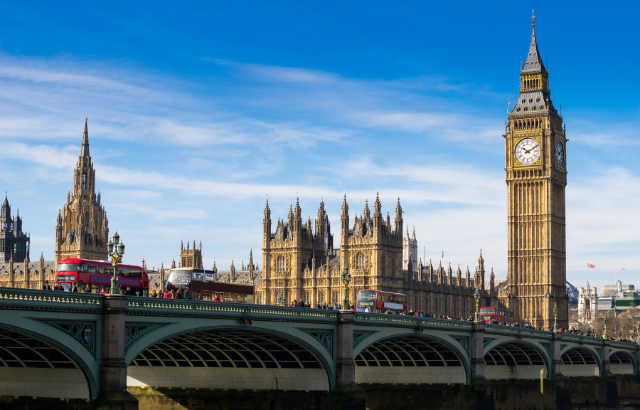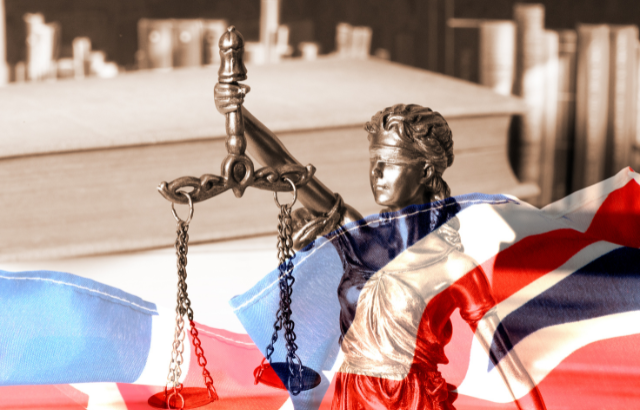Labour conference: members aren’t quite tearing chunks out of each other but a distinct air of unease remains
Professor Tim Bale from Queen Mary's School of Politics and International Relations has written for the Conversation on this year's Labour's Party Conference.
.jpg)
Stock image of Labour party rosette. Credit: stocknshares/iStock.com
Getting off the bus and walking to the Brighton Centre, the main venue for this year’s Labour conference, it was hard – impossible even – not to ponder on the pathetic fallacy.
I’m not referring to a party that won only 202 seats in 2019 fooling itself into thinking it stands any chance of winning an overall majority in 2023/24, but instead to the temptation to use the grey-black skies, truly torrential rain and gale-force winds that greeted delegates on Monday morning to convey the mood that had taken hold over the weekend.
Saturday and Sunday, after all, had seen bitterness and bile all around. Arguments raged up and down the seafront. Leader Keir Starmer’s proposal to change party rules for selecting its leaders and deselecting its MPs was the main topic at hand. But a close second came his deputy, Angela Rayner, labelling Conservative ministers “a bunch of scum”.
But then the clouds gradually parted, the sun poked through, and, in spite of a breeze that remained pretty bracing, the promenade became balmy(ish) once again. Had calm miraculously been restored?
Not quite, it seems. The calm after the storm turned out to be the calm before the storm, too. Citing dissatisfaction with the party’s position on the minimum wage, Andy McDonald, a shadow cabinet minister (albeit one few beyond the cognoscenti will have heard of), quit in what he clearly intended to be spectacular fashion. Until then, at least, Labour members weren’t tearing great lumps out of each other, as they regularly used to during Corbyn-era conferences. But this is clearly not yet a party at ease with itself, let alone with the country it aspires to govern - not by a long chalk.
As ever, of course, much of the infighting by the pier is as personal as it is ideological. Many of Labour’s supposedly star players – the kind of politicians who can be guaranteed to pack out a fringe event (proverbial princes over the water Andy Burnham and Sadiq Khan, and Angela Rayner herself, for instance) – seem pretty convinced that Labour’s current leader stands little or no chance of leading it to the promised land. They’re equally convinced, of course, that they could do a darn sight better job. Maybe their criticisms of the leadership and of each other are coded enough to be construed (by an optimist anyway) as constructive, but only just.
That makes for an atmosphere that may not be utterly poisonous but that isn’t particularly positive either – especially, I might add, for those of us who’d naively assumed that the mass ranks of mask-wearing Labour MPs we’d seen in the Commons weren’t simply virtue-signalling for the cameras but, unlike their Tory colleagues, were still taking COVID-19 guidelines seriously.
Fat chance, it seems, and the same is sadly true of nearly everyone else down in Brighton. The first three fringes I attended (in windowless rooms, natch) were not only packed but packed with a vast majority of attendees not wearing a face covering. Who knows, perhaps they think socialism is the answer, not just to capitalism, but to coronavirus too.
The feeling of foreboding probably isn’t helped by the ghost-at-the-feast presence of Corbyn, who is still suspended from the Parliamentary Labour Party but fully entitled, as a rank-and-file member, to swan around from one shindig to another soaking up the adoration of his forever-fans.
For all that, however, it’s difficult to escape the feeling that what we might term the “suits-to-sandals ratio” has shifted slightly (if by no means decisively) this year in favour of the former. Although, if truth be told and in keeping with the notion of a “political class”, it’s hard to tell among the suits who’s a lobbyist, who’s a think-tanker, and who’s an apparatchik-cum-adviser.
None of this is to take the whole conference thing lightly. This is, as we are constantly and rightly reminded by journalists, one of the few chances that an opposition party gets to showcase itself to a public that otherwise gives virtually no thought whatsoever to the people who (as they see it) spend most of their time criticising the jokers who are running the country without having a clue as to how they would do things differently, let alone better. And, perhaps more importantly, this is Starmer’s first in-the-flesh conference since being elected leader in the COVID-ravaged spring of 2020. Talk this time of the leader’s speech being “make or break” has more than a ring of truth to it.
Things did not start that well for Starmer at this conference – although those of us paying more attention to these things than is strictly healthy will have noted that he actually won approval for most of the rule changes he was shooting for. And I’m not sure McDonald’s walk-out will inevitably make things worse. Indeed, it was so self-evidently an act of showboating sabotage that it may even engender a degree of sympathy for their leader even among some of those who still carry a torch for Corbyn, giving him “permission to be heard” that he otherwise might not have enjoyed.
Whether, however, Starmer can exploit that permission to deliver a show-stopper of his own in his closing speech on Wednesday should soon become apparent in the inevitable plethora of post-conference polling.
This article was first published in The Conversation on 28 September.
Related items

10 December 2024

9 December 2024

6 December 2024